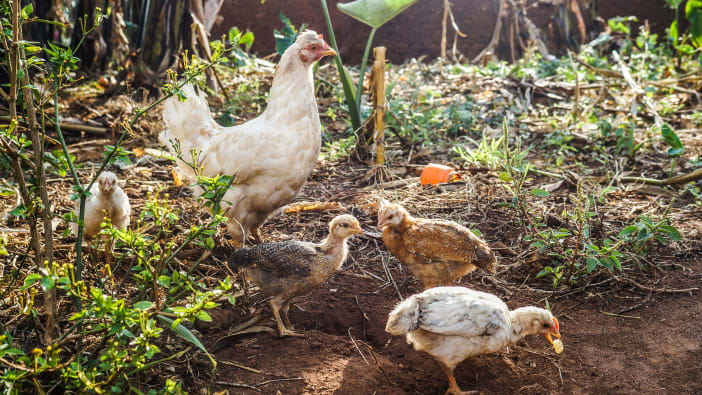A case study from Zambia
After many years of trying, through a very expensive law enforcement campaign, to deal with the poaching of wildlife, Zambia realised that no progress was being made. Poaching continued at the same rate – in some areas it even increased.
This situation led Zambia’s National Parks and Wildlife Service to carry out studies to find out the real causes of poaching. They discovered four important issues which influence the level of poaching. These issues may be of great interest to other groups working with conservation of wildlife and nature reserves.
1. Supplies of food
In villages with good supplies of food
– particularly meat and fish – there are fewer traditional hunters and less poaching.
- Encourage the production of alternative sources of protein – for example: beans, groundnuts or fish farming. Village hunters could be allowed a sustainable quota of certain animals to hunt each year – on condition that this meat is then available for the community. In this way, endangered species will be protected.
2. Employment
There is a growing need for employment in rural areas. If there is no employment, villagers desperate for money will become involved in the sale of meat and other livestock products – whether or not this is legal. People’s needs for money must be seen as genuine and respected.
- Local residents should be trained and employed in the management of wildlife. These trained, local village scouts have more knowledge, are more dedicated and cheaper than government civil servants. This results in an increased understanding and appreciation of wildlife resources.
- Encourage small income generation projects which depend on the use of sustainable wildlife products. As residents grow to depend on these, their support for the conservation of the resources will increase.
- Encourage village meetings where local villagers can share their views on the management of wildlife resources.
3. Traditional leadership
Traditionally the chiefs and headmen have made decisions about land use and ownership. The loss of these responsibilities to the government has led to poor protection of wildlife.
- Encourage partnership between traditional local leadership and government officials to deal with wildlife conservation issues. Village chiefs should have their respect and authority in these matters restored. They can then deal effectively with problems and receive greater respect from their people.
4. Increased earnings
The area must be able to make a good income from the local management of wildlife resources. Income should be used to increase local employment, develop alternative food supplies and encourage the local management of wildlife resources.
Time will be needed for these changes to take place. Local people may at first be unhappy to cooperate because of earlier harsh treatment from wildlife and government officials. Patience and persistence will be needed to build up relationships. The benefits of these ideas must reach most residents. Otherwise, villagers who feel they have ‘missed out’ may cause problems.
Once success has been achieved, good news spreads fast. This certainly happened in Zambia. Once some progammmes were successful, other communities wanted to join in.
Adapted from an article in Forest, Trees and People, Newsletter No 13, based on a report by D M Lewis, A Mwenya and G B Kawache: African Solutions to Wildlife Problems in Africa.








